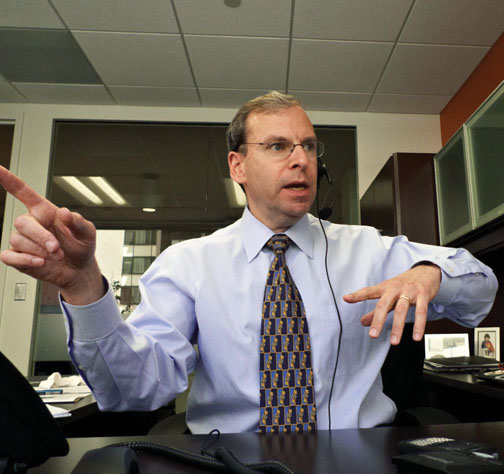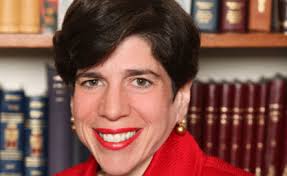The Conference of Major American Jewish Organizations, a New York City-based umbrella group with 50 member organizations, made an egregious mistake on April 30 by denying membership to J Street, a dovish pro-Israel advocacy organization that has been critical of some of Israel’s policies.
The Conference voted to reject J Street’s application by a margin of 22-17. J Street needed 34 votes, or the support of two-thirds of Conference members, to gain admission to one of the most influential Jewish organizations in the United States.
Before the vote was taken, some observers speculated that J Street was worthy of membership. The Conference, after all, is supposed to reflect a broad range of religious, political and ideological views.
But in staunchly conservative circles where dissent is equated with heresy, there was bedrock resistance to J Street’s inclusion in the Conference.
“Their positions are out of the mainstream of what could be considered acceptable within the Jewish community,” Farley Weiss, the president of the National Council of Young Israel, an alliance of Orthodox synagogue congregations, told The New York Times.
The Zionist Organization of America, a right-wing outfit that rejects Palestinian statehood, also opposed J Street’s membership, having accused it of “siding with Israel’s enemies.”
J Street, founded in 2008, is the liberal version of The American Israel Public Affairs Committee. J Street staunchly supports a two-state solution to resolve the Arab-Israeli conflict and, in the face of Israel’s opposition, backs current negotiations with Iran over its nuclear program. In 2009, J Street was critical of Israel’s invasion of the Gaza Strip.
In general, J Street is relatively far to the left of the present Israeli government, led by Prime Minister Benjamin Netanyahu.
J Street’s bid to become a Conference member was widely regarded as an acid test of the Jewish community’s inclusiveness and tolerance of dissent.
To no one’s surprise, liberal and centrist groups like Peace Now and the Anti-Defamation League, as well as organizations representing the Reform, Conservative and Reconstructionist branches of Judaism, supported J Street’s application. Orthodox and conservative organizations such as The National Council of Young Israel and the Zionist Organization of America voted against J Street.

Jeremy Ben-Ami, J Street’s president, was understandably disappointed by the outcome.
As he put it, “People whose views don’t fit with those running long-time organizations are not welcome, and this (vote) is proof of that. It sends the worst possible signal to young Jews who want to be connected to the Jewish community, but also want to have freedom of thought and expression.”
Rabbi Julie Schonfeld, the executive vice-president of the Rabbinical Assembly, sounded a similar theme. “It is of crucial importance to the future of the Jewish community that a full range of views is represented, and that we can be part of a robust dialogue to achieve what we are all committed to — a safe, secure and thriving Israel.”

In the wake of J Street’s rebuff, Rabbi Rick Jacobs, the president of the Union for Reform Judaism, said that the Conference can no longer provide “a collective voice for the entire Jewish pro-Israel community,” adding that it is in dire need of a significant overhaul.
It’s clear that the Conference is seriously out of touch. On the eve of the vote, Abraham Foxman, the national director of the Anti-Defamation League, said, “There is more tolerance for dissent in Israel than in the Jewish community.”
His biting comment speaks volumes. It would seem that a majority of Sovietesque Conference members cannot tolerate real diversity and will do everything in their power to marginalize dissenters and squelch any meaningful debate concerning Israel’s conflict with the Palestinians.
Shame on the Conference.